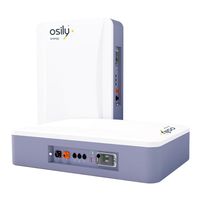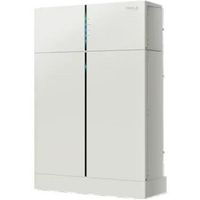Battery Storage
Battery storage is an essential part of any modern renewable energy system. Whether paired with solar panels, a wind turbine, or other sources of renewable generation, a battery storage system helps you make the most of the electricity you generate.
By capturing and storing unused electricity, these systems give you access to stored electricity when you need it most – whether that's during peak demand, overnight, or during a power cut. That means less reliance on the grid, lower energy bills, and a more efficient way to use renewable energy.
YESSS Electrical offers a range of battery storage solutions to suit different setups, including commercial applications and residential installations. The products use trusted battery storage technology and are designed to integrate with new or existing solar power systems. With lithium-ion batteries at the core, they offer high capacity, fast charging and excellent performance over time.
A typical energy storage system includes a battery unit, control components, and a smart connection to your renewable energy supply. This setup allows you to store energy when you're generating electricity during the day and use it later when rates are higher or sunlight is unavailable.
It's a smart way to manage your power use and reduce your reliance on fossil fuels.
Whether you’re looking to power a home, support a business, or add resilience to a remote project, battery storage can deliver serious benefits. It also supports the UK’s transition to a greener, more secure energy future by helping to balance supply and demand across the grid.
If you're exploring battery storage for your home or workplace, our team can help you find the right system, plan your installation, and ensure you're getting the best value from your investment.
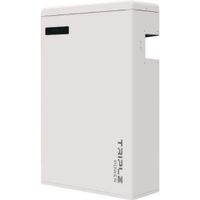
5.8kWh Li-ion (LFP) Master Solar Battery
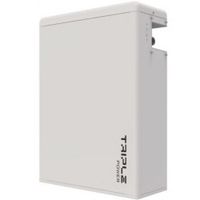
5.8kWh Li-ion (LFP) Slave Solar Battery
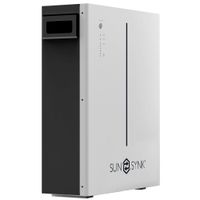
5.32kWh Wall Mounted Battery, 51.2V DC, 104Ah, 450mm x 520mm x 185mm, IP20
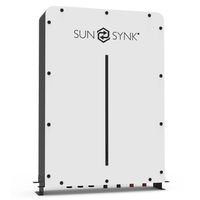
5.32KWh LifePO4 Battery with Cable Set and DC Isolator, 51.2V, 104Ah, 440mm x 620mm x 135mm, IP65
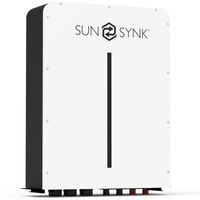
5.12kWh Wall/Rack Mounted Battery, IP65
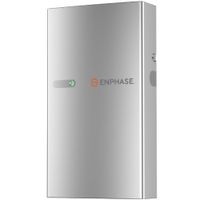
5kWh Battery, 980mm x 550mm x 188mm, IP55, IQ Range
FAQs
What is battery storage and how does it work?
Battery storage allows you to store excess electricity generated by solar panels, wind turbines, or other renewable energy systems. The stored power can be used later, helping you reduce energy waste and save on bills.
What types of batteries are used in energy storage systems?
Most modern systems use lithium-ion batteries due to their high efficiency, fast charging, and long lifespan. They’re ideal for both residential and commercial use.
Can I add battery storage to my existing solar power system?
Yes, many battery storage solutions are designed to work alongside your current solar panels. They can be retrofitted to maximise your energy usage and minimise export back to the grid.
Is battery storage only for homes?
No – battery storage technology is also used in commercial settings, transport infrastructure, and remote locations. It’s flexible enough to support different projects, businesses, and applications.
What are the benefits of battery storage?
Battery storage helps you reduce reliance on the grid, lower your energy bills, increase your use of renewables and provide battery power backup during outages or high-demand periods.
How long does battery storage last?
A well-maintained system can last 10–15 years, depending on the quality of the components, the number of charge/discharge cycles, and how the system is used.
Does battery storage help during a power cut?
Yes, some systems can operate in standby mode and provide backup power when the grid goes down. Not all setups support this feature, so it’s worth checking before installation.
How much energy can a battery storage system hold?
Capacity varies depending on the size and type of battery. Home systems typically range from 5kWh to 15kWh, while larger commercial setups can store much more.
Are there government incentives for battery storage in the UK?
While support schemes vary, battery storage is increasingly seen as a key part of the UK's transition to renewable energy. Some systems may qualify for reduced VAT or be included in solar incentive schemes.
What should I consider before installing a battery storage system?
Think about your current energy use, your goals (saving money, going green, increasing independence), the tariffs you’re on, and whether your system will be grid-connected or off-grid.
The YESSS Electrical team can help guide you through your options.


